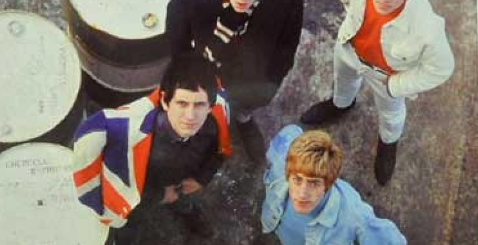Behind Blue Eyes by The Who Lyrics Meaning – Unmasking the Anguish in Rock’s Soulful Ballad
Lyrics
To be the bad man
To be the sad man
Behind blue eyes
No one knows what it’s like
To be hated
To be fated
To telling only lies
But my dreams
They aren’t as empty
As my conscience seems to be
I have hours, only lonely
My love is vengeance
That’s never free
No one knows what it’s like
To feel these feelings
Like I do
And I blame you
No one bites back as hard
On their anger
None of my pain and woe
Can show through
But my dreams
They aren’t as empty
As my conscience seems to be
I have hours, only lonely
My love is vengeance
That’s never free, mm-mm-hmm
When my fist clenches, crack it open
Before I use it and lose my cool
When I smile, tell me some bad news
Before I laugh and act like a fool
And if I swallow anything evil
Put your finger down my throat
And if I shiver, please give me a blanket
Keep me warm, let me wear your coat
No one knows what it’s like
To be the bad man
To be the sad man
Behind blue eyes
The Who’s ‘Behind Blue Eyes’ is more than just a song; it’s a confessional that delves deep into the human psyche. Released in 1971 as part of the band’s ‘Who’s Next’ album, it offers a bold, vulnerable exploration of the inner life of a misunderstood character—a nuanced dive into the soul of ‘the bad man,’ ‘the sad man,’ obscured by blue eyes.
This haunting ballad, penned by lead guitarist Pete Townshend, brims with stark introspection and unspoken tension. It invites us to peek behind the curtain of a persona riddled with contradictions, offering empathy to those often judged solely by their external actions without a thought for the internal struggles that drive them.
The Mask of the Antagonist: Empathy for the Devil?
Townshend crafts a unique perspective by situating the listener within the troubled mind of the song’s protagonist. By painting the character as both the ‘bad man’ and ‘the sad man,’ the lyrics immediately set up a dichotomy, prompting us to confront the often one-dimensional view we have of those who act out in anger or malice.
What’s masterfully hidden in plain sight is a plea for empathy. ‘Behind Blue Eyes’ challenges us to acknowledge that behind the acts that make a person ‘bad’ in the eyes of others, there’s often a well of unresolved pain and loneliness. In bringing to life the private tribulations of this character, Townshend implores the listener to look beyond the surface-level judgments that society is quick to make.
The Weight of Untruths: The Burden of ‘Telling Only Lies’
Mendacity lies at the heart of this ballad, with the line ‘To be fated to telling only lies’ speaking to the existential ache of the protagonist. It is not a glorification of deceit, but rather an expression of the heaviness that accompanies it. Forced into falsehoods, the individual is cornered into a life less authentic, a lifeless life.
This recurrent theme of deception within the lyrics points to the broader human experience of sacrificing one’s truth to navigate the expectations and judgments of society. ‘Behind Blue Eyes’ thus not only explores the individual’s turmoil but also reflects on the universal struggle to maintain personal integrity in a world that often rewards pretense over honesty.
Dreams Versus Conscience: The Battle Within
The haunting refrain, ‘But my dreams, they aren’t as empty, as my conscience seems to be,’ speaks to a profound inner conflict. The character’s dreams, although not completely barren, exist in stark contrast to a seemingly vacant moral compass—a suggestion of an internal battle between aspiration and the actions that weigh heavily upon the soul.
Townshend delicately balances this contention, acknowledging the yearning for something more fulfilling while admitting to a hollow conscience. It’s a duality that resonates with listeners; the desire to aspire for greater ideals despite falling short in our deeds, the universal tug-of-war between idealism and realism.
Quintessential Lines: The Visceral Imagery of Self-Control
‘When my fist clenches, crack it open / Before I use it and lose my cool’—this imagery of a fist clenched in anger, needing to be ‘cracked open’ to release the tension, offers a vivid representation of struggle with impulse control. These lines hit hard with their rawness, almost functioning as an instruction manual for the moments when rage threatens to overtake reason.
The vividness of the lyrics extends to reactive measures against one’s own darker instincts, invoking scenes of self-sabotage, penance, and a yearning for external help to maintain equanimity. Townshend modernizes the theme of human frailty, turning ancient motifs of the tragic hero into something deeply personal and contemporarily relevant.
The Hush Before the Storm: The Song’s Hidden Crescendo
Often overlooked is the song’s dynamic transition from introspective ballad to an unrestrained wail, a musical embodiment of the internal explosion of emotion the protagonist grapples with. In its climax, the song shifts, unleashing a torrent of rage that stands in stark contrast to the earlier, controlled verses.
This abrupt shift conveys not just the inevitable breaking point of suppressed feelings but also the dual nature of the human spirit. In this way, ‘Behind Blue Eyes’ serves as a reminder of the pressures that build beneath the facades we present to the world and the cathartic release that music, at its core, often aims to provide as an antidote to the weight of being truly seen.








